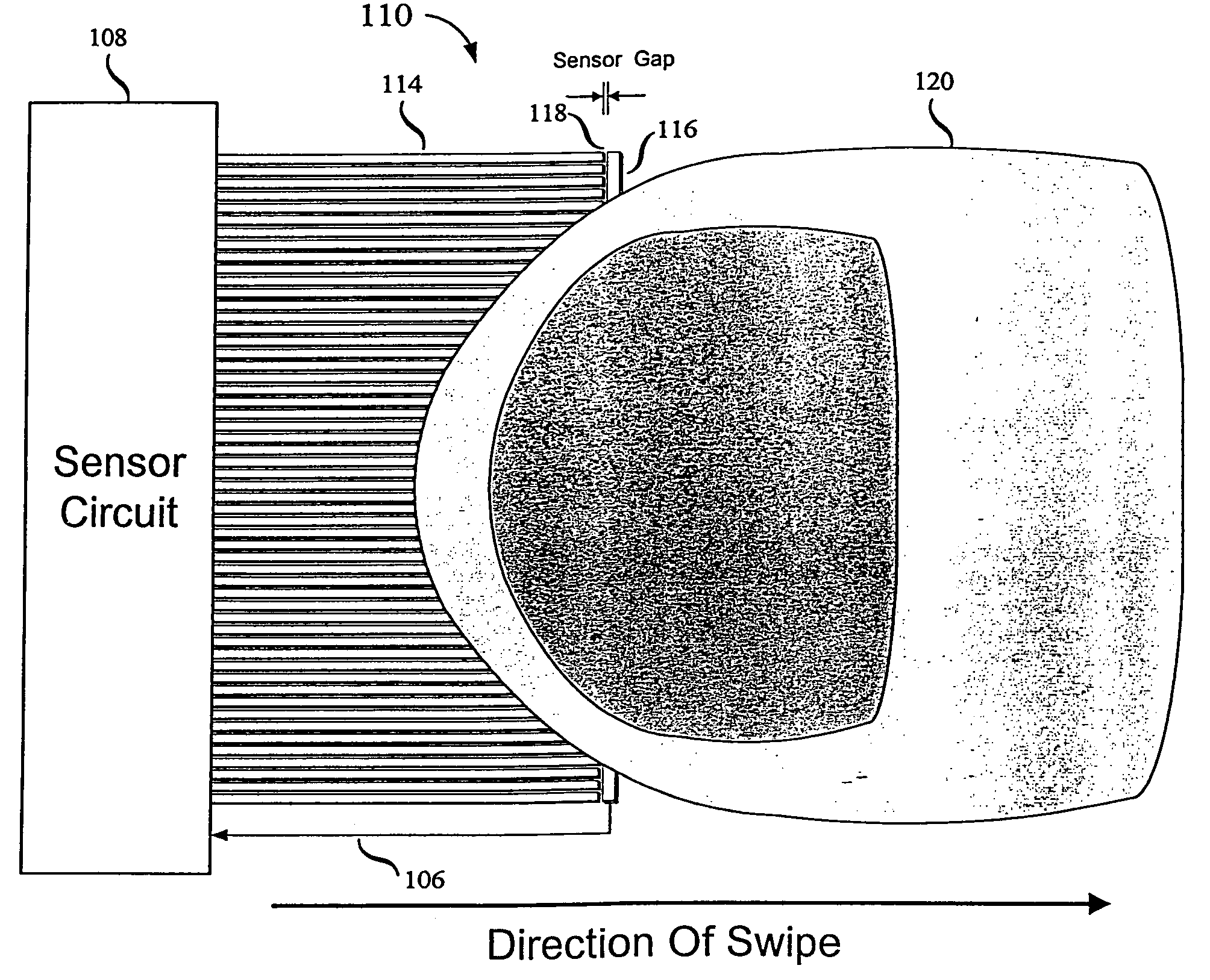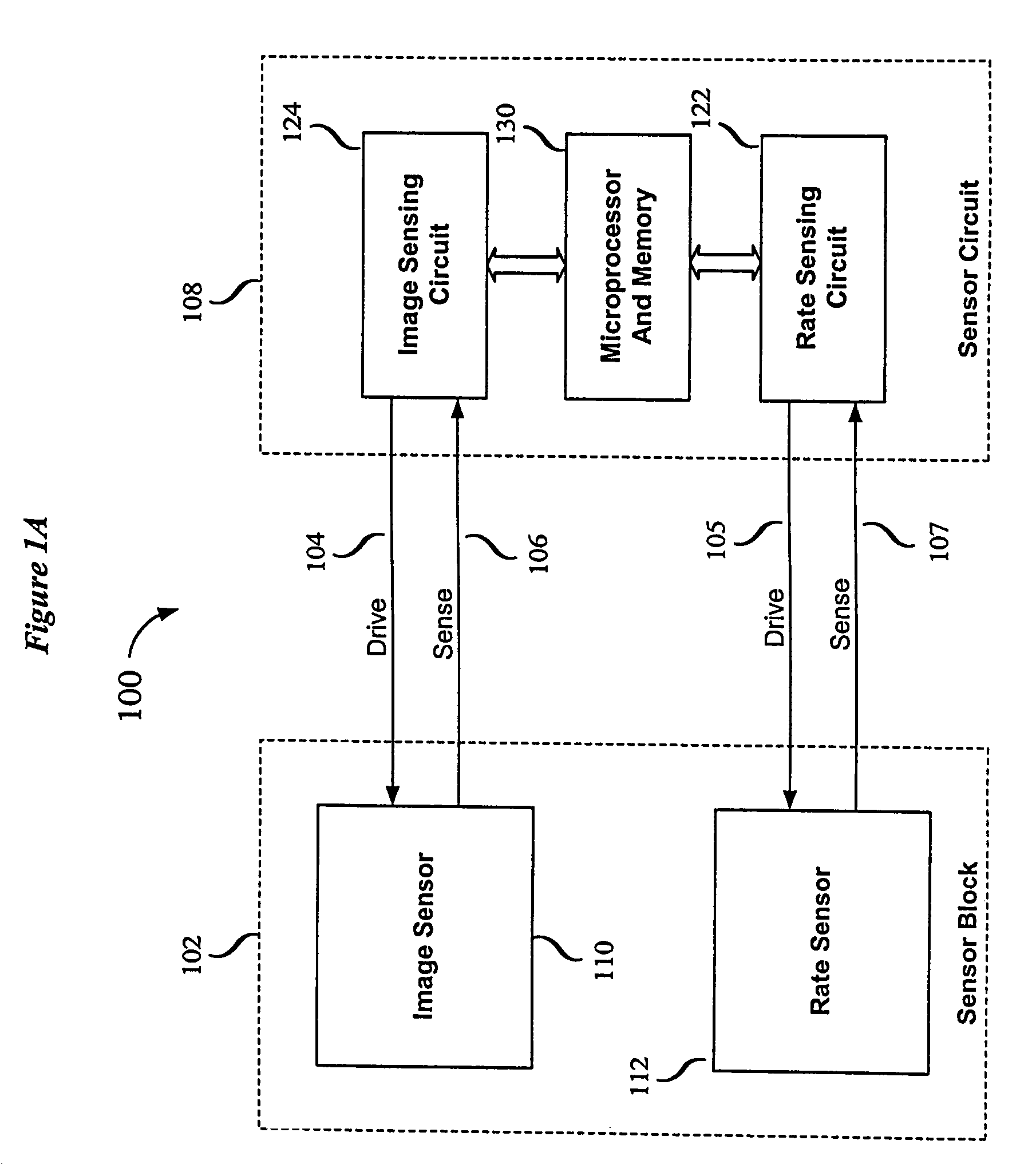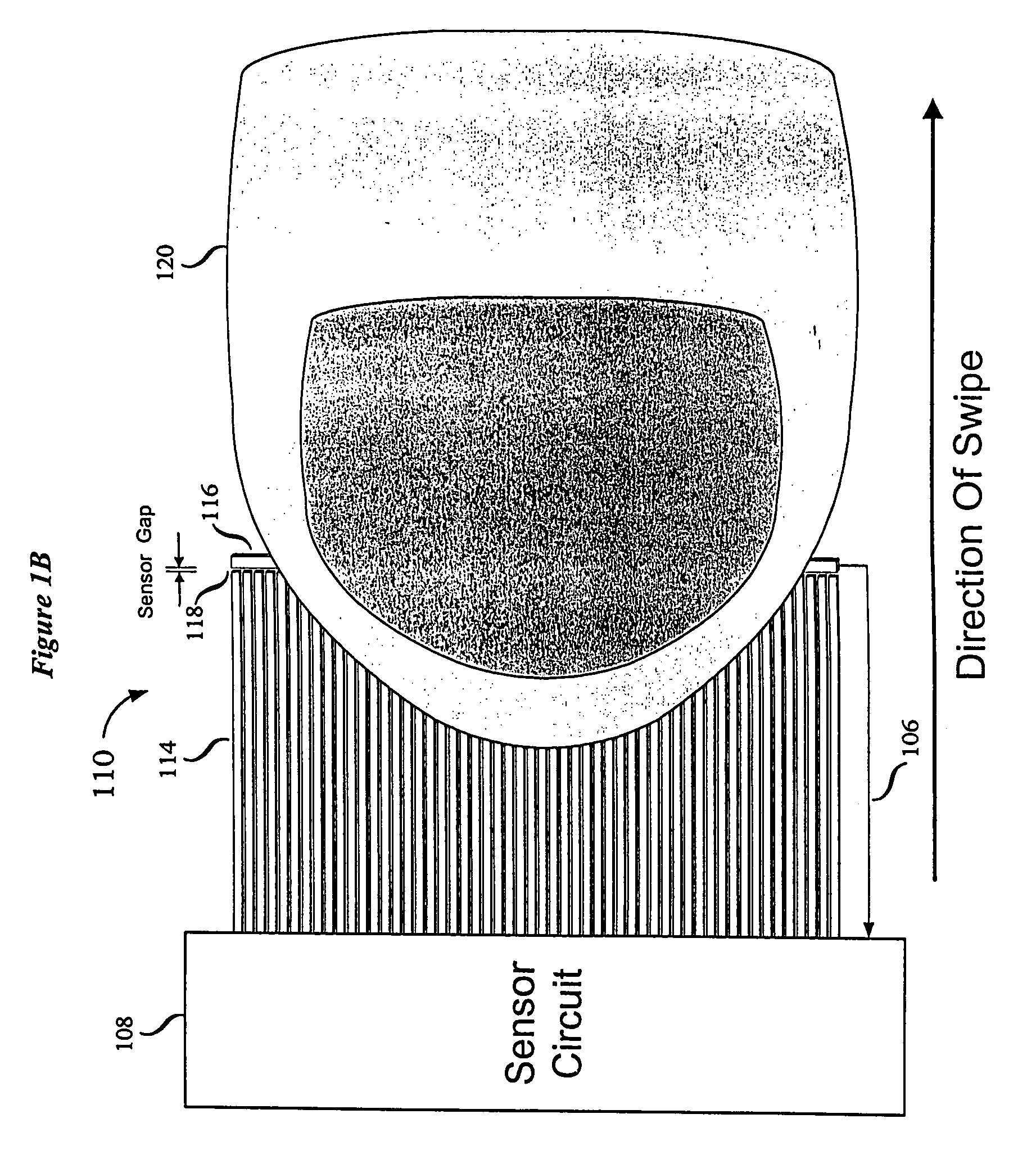Swiped aperture capacitive fingerprint sensing systems and methods
a capacitive fingerprint and aperture technology, applied in the field of capacitive fingerprint sensing systems and methods, can solve problems such as difficulty in achieving, number of transistor devices, and breakdown, and achieve the effect of faster ra
- Summary
- Abstract
- Description
- Claims
- Application Information
AI Technical Summary
Benefits of technology
Problems solved by technology
Method used
Image
Examples
second embodiment
[0092]rate sensor 112 is shown in FIG. 10. In this embodiment, the orientation of image sensor 110 is reversed with respect to the direction of finger swipe. Rate sensor 112 is located on the opposite side of image sensor pickup plate 116 from drive plates 114. This configuration permits the rate drive plates and rate pickup plates to extend across the entire width of the sensor, thereby providing larger sensed signals. As shown in FIG. 10, rate sensor 112 includes finger detectors 1010, 1012, 1014 and 1016 spaced apart along the direction of finger swipe by a spacing 1006. Each of the finger detectors includes at least one rate drive plate and one rate pickup plate. Thus, for example, finger detector 1010 includes rate drive plate 1010a and rate pickup plate 1010b. The rate pickup plates of each of the finger detectors 1010, 1012, 1014 and 1016 are connected to the pickup plate 116 of image sensor 110. In other embodiments, the rate pickup plate and the image pickup plate can be el...
third embodiment
[0093]rate sensor 112 is shown in FIG. 11. The embodiment of FIG. 11 uses differential rate sensing. Rate sensor 112 includes finger detectors 1120, 1122, . . . 1130 positioned along the direction of finger swipe. Each of the finger detectors has a differential configuration. In particular, each finger detector includes a drive plate and first and second pickup plates located on opposite sides of the drive plate. For example, finger detector 1120 includes a drive plate 1140 and pickup plates 1142 and 1144 located on opposite sides of drive plate 1140. Pickup plate 1142 is spaced from drive plate 1140 by sensor gap 1150, and pickup plate 1144 is spaced from drive plate 1140 by sensor gap 1152. Drive plate 1140 and pickup plates 1142 and 1144 may be elongated conductors oriented perpendicular to the direction of finger swipe across the image sensor 110. In the embodiment of FIG. 11, drive plate 1140 is wider than pickup plates 1142 and 1144 and is connected to a drive circuit via a co...
PUM
 Login to View More
Login to View More Abstract
Description
Claims
Application Information
 Login to View More
Login to View More - R&D
- Intellectual Property
- Life Sciences
- Materials
- Tech Scout
- Unparalleled Data Quality
- Higher Quality Content
- 60% Fewer Hallucinations
Browse by: Latest US Patents, China's latest patents, Technical Efficacy Thesaurus, Application Domain, Technology Topic, Popular Technical Reports.
© 2025 PatSnap. All rights reserved.Legal|Privacy policy|Modern Slavery Act Transparency Statement|Sitemap|About US| Contact US: help@patsnap.com



